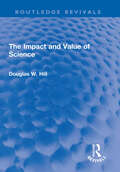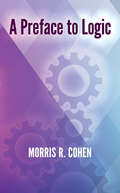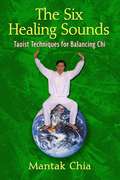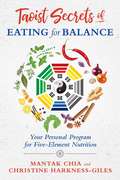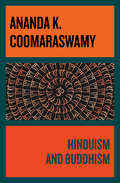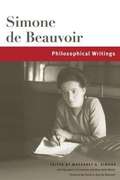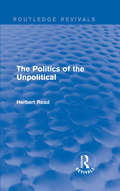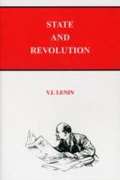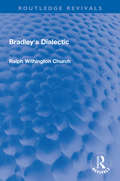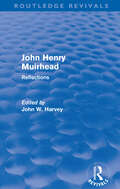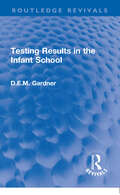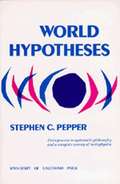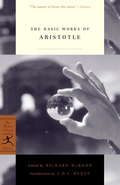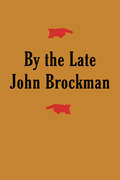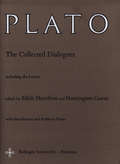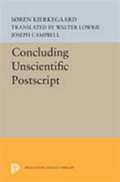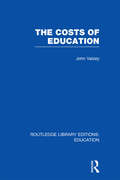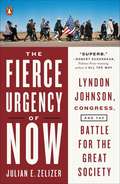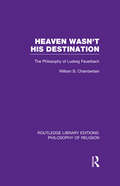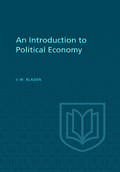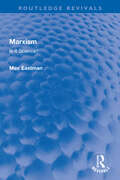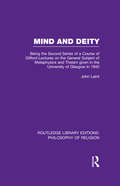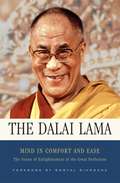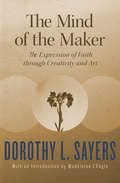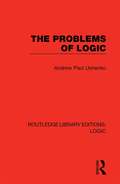- Table View
- List View
The Impact and Value of Science (Routledge Revivals)
by Douglas W. HillFirst published in 1945, The Impact and Value of Science is both a plea and a challenge: a plea for more and more science – not to increase the sum total of technical knowledge nor to extend present material amenities, but in the words of the author for the sake of "mental maturity." It is a challenge to try the method of science. Every man is a scientist and every scientist a useful citizen. Dr. Hill has been both an industrial and academic scientist but here he is concerned with something much wider than textbook conception of science. He gives a clear answer to those who argue that scientific progress is leading to man’s destruction by showing that if the scientific method is applied in "non-scientific" fields – in religion, ethics, politics – man will learn how to use the technical inventions of science as stepping stones in social and economic progress. With space tourism and climate crisis marking the two ends of scientific development in current times, this book is of value to everyone but especially to students of climate change, public policy and ethics.
A Preface to Logic
by Morris R. CohenOver the past two centuries the field of logic has developed at an explosive pace into new areas far removed from the traditional syllogism and formal proof. The purpose of this well-known introductory treatment is to chart, clearly and lucidly, this new domain of today's vastly sophisticated logic. Author Morris R. Cohen explores "the periphery of logic, the relations of logic to the rest of the universe, the philosophical presuppositions which give logic its meaning, and the applications which give it importance."Beginning with an exploration of the traditional scope of logic as the medium of formal proofs, the text pursues a modern investigation of the relationship between logic and the mind, logic and speech, logic in metaphor and fiction-and most significantly, logic and the concept of abstract reasoning as applied to the empirical world. Additional topics include logic and statistical method, probability, and scientific models. Concise and highly readable, this volume is suitable for college undergraduates and other readers interested in logic. 1944 edition.
The Six Healing Sounds: Taoist Techniques for Balancing Chi
by Mantak ChiaThe Six Healing Sounds that keep the vital organs in optimal condition • Presents vocalizations and accompanying postures that dissolve the tensions at the root of unhealthy chi flow and organ malfunction • Shows how to release excess heat trapped around the organs and redistribute it to cooler regions of the body to bring balance, health, and calmness to the entire system Thousands of years ago Taoist masters discovered that a healthy organ vibrates at a particular frequency. They found six sounds with the correct frequencies to keep each organ in optimal condition. To accompany these Six Healing Sounds, six postures were developed to activate the acupuncture meridians, or energy channels, of the corresponding organs. In The Six Healing Sounds Master Mantak Chia explains how the pressures of modern life can cause excess heat to become trapped around the organs, causing energy blockages and sickness. He shows readers how the vibrations of the Six Healing Sounds and their accompanying postures redistribute this excess heat to the cooler regions of the body, thereby stimulating and balancing chi energy and restoring the vital organs. Regular practice of the Six Healing Sounds promotes optimal health for the organs, increased sexual pleasure, emotional balance, and the prevention of illness.
Taoist Secrets of Eating for Balance: Your Personal Program for Five-Element Nutrition
by Mantak Chia Christine Harkness-GilesExplains how to use your Taoist astrology birth chart as a personal nutritional guide for health, longevity, and organ energy balance • Explores how to help balance your birth chi through your eating habits as well as explaining how foods address your five-element energetic profile • Provides detailed food lists based on ancient Taoist wisdom that reveal their effect on the Yin, Yang, and five-element energies • Shows how your five-element energies outline your life and influence success in relationships and at work We are each born with a unique combination of heavenly and earthly energies defined by the five elements and dictated by the universe at the moment you take your first breath. This “birth chi” can be calculated using the year, month, day, and time of your birth, and it reveals your personal profile of health and emotional strengths and weaknesses as well as the energy cycles you will encounter throughout your life. In this Inner Alchemy astrology nutrition guide, Master Mantak Chia and Christine Harkness-Giles explore how to strengthen your birth chi through your eating habits, revealing which foods will address imbalances in your five-element organ energy profile. The authors explain which organs are connected with each element--fire, earth, metal, water, and wood--and provide detailed food lists based on ancient Taoist wisdom that reveal the energetic temperature, flavor, and organ related to many common foods and superfoods. They emphasize the importance of local, seasonal, and fresh foods and of yin-yang balance for health. The authors illustrate the five elements’ characteristics through sample profiles for celebrities such as Paul McCartney and Meryl Streep, along with Taoist nutritional recommendations based on their charts. The authors also explore how your Inner Alchemy astrology profile determines your life and relationships and explain how Inner Alchemy practices and five-element nutrition can improve all aspects of your life. By eating in line with your personal five-element energetic profile, as part of ancient Inner Alchemy techniques, you can improve health and longevity and strengthen connections with your loved ones and the energies of the cosmos.
Hinduism and Buddhism
by Ananda K. CoomaraswamyThe renowned Sri Lankan metaphysician presents his enlightening insight into the essential kinship between Hinduism and Buddhism.In this probing work, Ananda K. Coomaraswamy examines the foundational myths and spiritual underpinnings of Hinduism and Buddhism. Discarding the Western narrative of philosophical divergence, Coomaraswamy instead explores the essential unity between these two major religions. In his perspective, one is merely an outgrowth of the other. Dividing the book into two parts, Coomaraswamy begins each section with an overview of each religion&’s foundational myths. The section on Hinduism then covers concepts such as karma, maya, reincarnation, sacrifice, and caste. In the section on Buddhism, he demonstrates that Buddha never intended to start a new religion, but to deepen the spiritual understanding of the existing one.
Philosophical Writings
by Margaret Simons Simone De BeauvoirDating from her years as a philosophy student at the Sorbonne, this is the 1926-27 diary of the teenager who would become the famous French philosopher, author, and feminist, Simone de Beauvoir. Written years before her first meeting with Jean-Paul Sartre, these diaries reveal previously unknown details about her life and offer critical insights into her early philosophy and literary works. Presented here for the first time in translation and fully annotated, the diary is completed by essays from Barbara Klaw and Margaret A. Simons that address its philosophical, historical, and literary significance. The volume represents an invaluable resource for tracing the development of Beauvoir's independent thinking and influence on the world.
The Politics of the Unpolitical (Routledge Revivals: Herbert Read and Selected Works)
by Herbert ReadIn this collection of fourteen essays, first published in 1943, Herbert Read extends and amplifies the points of view expressed in his successful pamphlet To Hell with Culture, which has been reprinted here. The ‘politics of the unpolitical’ are the politics of those who strive for human values and not for national or sectional interests. Herbert Read defines these values and demands their recognition as a solvent of social and cultural crises’, and looks forward to the future with constructive vision. This book will be of interest to students of politics, history, and philosophy.
State and Revolution
by V. I. LeninWritten in 1917 and unfinished because the writing was interrupted by the October revolution, Russian revolutionary Vladimir I. Lenin explains the nature of the state and how and under what circumstances it can be abolished. It is a polemic against the Social Democrats, Mensheviks and anarchists of the time.
Bradley's Dialectic (Routledge Revivals)
by Ralph W. ChurchFirst published in 1942, Bradley’s Dialectic is a competent survey of Bradley’s leading philosophical principles, together with its difficulties. The primary objective is to bring out in somewhat simple terms the essential character of Bradley’s dialectic. Here ‘dialectic’ means a method of elucidation. Professor Church’s appraisal of the pertinence of Bradley’s dialectic is heightened by his critical discussion of several less elucidated metaphysical features. In this connection, he submits a penetrating criticism of misrepresentations of Bradley’s views, especially in the important subject of Relations and its place in the structure and development of Thought. Although brief, Professor Church’s analysis is a vital study of crucial themes in philosophy, which will appeal to students of Philosophy and Metaphysics.
John Henry Muirhead: Reflections (Routledge Revivals)
by John W HarveyFirst published in 1942, Reflections documents the life of John Henry Muirhead and the philosophical age that he observed. The first part of the volume derives from Muirhead’s own autobiographical narrative, left unfinished when he died in May 1940. The second part features two final chapters written by John W. Harvey that comprehensively record the final stages of Muirhead’s life. Harvey’s chapters incorporate Muirhead’s unfinished final years of commentary and begin at the man’s retirement from Birmingham Chair in 1921. As a student and teacher of philosophy, Muirhead’s life ran almost precisely parallel to what he himself refers to as ‘one of the most vivid and important movements in British and American philosophy’. He came into contact with some of the age’s primary thinkers and as such, his own autobiography is important in providing an insight into his contemporary philosophical environment.
Testing Results in the Infant School (Routledge Revivals)
by D.E.M. GardnerFirst published in 1942, Testing Results in the Infant School describes an attempt to measure objectively the results of education in Infant schools where children are free to move and speak and play, as compared with schools of a more formal and traditional type. The book explains in detail the variety of tests used, the reasons behind them, and the children’s reactions to them. It concludes with an evaluation of the results and suggestions for their bearing on educational practice. It will appeal to those with an interest in the history, theory, and psychology of education.
World Hypotheses: A Study in Evidence
by Stephen C. Pepper"World hypotheses" correspond to metaphysical systems, and they may be systematically judged by the canons of evidence and corroboration. In setting forth his root-metaphor theory and examining six such hypotheses--animism, mysticism, formism, mechanism, contextualism, and organicism--Pepper surveys the whole field of metaphysics. Because this book is an analytical study, it stresses issues rather than men. It seeks to exhibit the sources of these issues and to show that some are unnecessary; that the rest gather into clusters and are interconnected in systems corresponding closely to the traditional schools of philosophy. The virtue of the root-metaphor method is that it puts metaphysics on a purely factual basis and pushes philosophical issues back to the interpretation of evidence. This book was written primarily as a contribution to the field, but its plan excellently suits it for use as a text in courses in metaphysics, types of philosophical theory, or present tendencies in philosophy.
The Basic Works of Aristotle (Modern Library Classics Ser.)
by Richard Mckeon AristotlePreserved by Arabic mathematicians and canonized by Christian scholars, Aristotle's works have shaped Western thought, science, and religion for nearly two thousand years. Richard McKeon's The Basic Works of Aristotle-constituted out of the definitive Oxford translation and in print as a Random House hardcover for sixty years-has long been considered the best available one-volume Aristotle. Appearing in paperback at long last, this edition includes selections from the Organon, On the Heavens, The Short Physical Treatises, Rhetoric, among others, and On the Soul, On Generation and Corruption, Physics, Metaphysics, Nicomachean Ethics, Politics, and Poetics in their entirety.From the Trade Paperback edition.
By the Late John Brockman
by Mr John BrockmanA radical, experimental work that challenges the boundaries of poetry, philosophy, and science. First published in 1969, this new and expanded edition of John Brockman's first book, By The Late John Brockman, also includes the full text of 37 (1971), and Afterwords (1973).This edition features a new foreword by Hans Ulrich Obrist, co-director of the Serpentine Gallery and author of Ways of Curating.
The Collected Dialogues of Plato
by Plato Edith Hamilton Lane Cooper Huntington CairnsAll the writings of Plato generally considered to be authentic are here presented in the only complete one-volume Plato available in English. The editors set out to choose the contents of this collected edition from the work of the best British and American translators of the last 100 years, ranging from Jowett (1871) to scholars of the present day. The volume contains prefatory notes to each dialogue, by Edith Hamilton; an introductory essay on Plato's philosophy and writings, by Huntington Cairns; and a comprehensive index which seeks, by means of cross references, to assist the reader with the philosophical vocabulary of the different translators.
Concluding Unscientific Postscript (Princeton Legacy Library #5524)
by Søren Kierkegaard Walter Lowrie Joseph CampbellThe Princeton Legacy Library uses the latest print-on-demand technology to again make available previously out-of-print books from the distinguished backlist of Princeton University Press. These editions preserve the original texts of these important books while presenting them in durable paperback and hardcover editions. The goal of the Princeton Legacy Library is to vastly increase access to the rich scholarly heritage found in the thousands of books published by Princeton University Press since its founding in 1905.
The Costs of Education (Routledge Library Editions: Education)
by John VaizeyThis is the first book which authoritatively reviews the UK expenditure on education from 1920 – 1955, both by local authorities and private schools. The book takes the main elements of education in turn and discusses them in detail. There are original studies of local authority finance, of teachers’ pay and of the economics of private education. It examines educational spending by social class and compares the growth of educational services in England and Wales, Scotland and Northern Ireland.
The Fierce Urgency of Now
by Julian E. ZelizerA majestic big-picture account of the Great Society and the forces that shaped it, from Lyndon Johnson and members of Congress to the civil rights movement and the mediaBetween November 1963, when he became president, and November 1966, when his party was routed in the midterm elections, Lyndon Johnson spearheaded the most transformative agenda in American political history since the New Deal, one whose ambition and achievement have had no parallel since. In just three years, Johnson drove the passage of the Civil Rights and Voting Rights Acts; the War on Poverty program; Medicare and Medicaid; the National Endowments for the Arts and the Humanities; Public Broadcasting; immigration liberalization; a raft of consumer and environmental protection acts; and major federal investments in public transportation. Collectively, this group of achievements was labeled by Johnson and his team the "Great Society."In The Fierce Urgency of Now, Julian E. Zelizer takes the full measure of the entire story in all its epic sweep. Before Johnson, Kennedy tried and failed to achieve many of these advances. Our practiced understanding is that this was an unprecedented "liberal hour" in America, a moment, after Kennedy's death, when the seas parted and Johnson could simply stroll through to victory. As Zelizer shows, this view is off-base: In many respects America was even more conservative than it seems now, and Johnson's legislative program faced bitter resistance. The Fierce Urgency of Now animates the full spectrum of forces at play during these turbulent years, including religious groups, the media, conservative and liberal political action groups, unions, and civil rights activists.Above all, the great character in the book whose role rivals Johnson's is Congress--indeed, Zelizer argues that our understanding of the Great Society program is too Johnson-centric. He discusses why Congress was so receptive to passing these ideas in a remarkably short span of time and how the election of 1964 and burgeoning civil rights movement transformed conditions on Capitol Hill. Zelizer brings a deep, intimate knowledge of the institution to bear on his story: The book is a master class in American political grand strategy.Finally, Zelizer reckons with the legacy of the Great Society. Though our politics have changed, the heart of the Great Society legislation remains intact fifty years later. In fact, he argues, the Great Society shifted the American political center of gravity--and our social landscape--decisively to the left in many crucial respects. In a very real sense, we are living today in the country that Johnson and his Congress made.
Heaven Wasn't His Destination: The Philosophy of Ludwig Feuerbach (Routledge Library Editions: Philosophy of Religion)
by William B. ChamberlainIf forced to state Feuerbach’s philosophical genealogy, one would have to say that he was son of Hegel, father of Marx, and half-brother of Comte. In his own day he had many a celebratory and many a vilifier. His philosophy has received very little direct treatment in the English language. Feuerbach’s contribution was in his writings on religion and philosophy, each of them a manifesto to humanity, telling us that the desires of men can be satisfied here below. The object of this book, first published in 1941, is twofold. It is its intention to pay humble tribute to a little understood philosopher whose stature grows with the years, and in so doing perhaps to provide a key to the question of religion and personal immortality for those who reject philosophical idealism and a personal God.
An Introduction to Political Economy
by Vincent BladenNewly revised by the author (1956), this text-book for beginning students is also designed for general readers who want to know what economics is and how economists think. It analyses the size and composition of the wage-earner in modern industry, Canadian public policy in relation to combines, and the the social problems of the special problems of the Canadian wheat-growing and newsprint industries. "...an interesting, instructive, and valuable book full of essential information."
Marxism: Is it Science? (Routledge Revivals)
by Max EastmanFirst published in 1941, Marxism: Is it Science? was written to present the author’s criticisms of Marxism and, in doing so, to further exemplify his ‘Method of Instruction’ first proposed in an earlier work. The book is divided into six parts to provide six complete presentations of Marxism and why the author considers it unscientific. The six different approaches, varying in focus and complexity, work together to give the reader a detailed overview of Marxism and the authors critique of it.
Mind and Deity: Being the Second Series of a Course of Gifford Lectures on the General Subject of Metaphysics and Theism given in the University of Glasgow in 1940 (Routledge Library Editions: Philosophy of Religion)
by John LairdComplementary to Theism and Cosmology, this book begins with a discussion of philosophical and theological idea-ism, and our common beliefs concerning nature, man, and God. It is principally concerned with idealism - the place of ideals in reality rather than with the place of ideas. It discusses personality, justice, value, morals and theism versus pantheism then ends with a discussion of the general relations between a cosmological theism and a theism whose primary interest is the conservation and the incarnation of what is good and fine.
Mind in Comfort and Ease
by Adam Pearcey Patrick Gaffney Matthieu Ricard Richard Barron Sogyal Rinpoche His Holiness the Dalai LamaHere, in a teaching of outstanding completeness and clarity, the Dalai Lama sets out the key principles of Buddhism, showing how the mind can be transformed, and suffering overcome, through love, compassion, and a true understanding of the nature of reality. By illustrating his brilliant overview of the path with his own personal experiences and advice on how to integrate the practice, the Dalai Lama brings these teachings to life. The Dalai Lama delves deep into the teaching of the Great Perfection, or Dzogchen. His enthusiasm and admiration for this profound tradition shine through as he comments on an important work by the great Dzogchen master Longchen Rabjam, Finding Comfort and Ease in Meditation on the Great Perfection. This teaching, with its remarkable breadth and richness, was originally given to an audience of ten thousand in France in 2000, and this book perfectly captures the majesty of the occasion. As Sogyal Rinpoche, the Dalai Lama's host for the occasion, said, "All of us were moved by the depth, relevance, and accessibility of these teachings; there were those who said that they were among the most remarkable they had ever heard him give. To receive these teachings from him was the opportunity of a lifetime." Blending the highest wisdom with the deepest compassion and humanity, Mind in Comfort and Ease offers a glimpse into the Dalai Lama's wisdom mind and a panoramic view of the Buddhist path.
The Mind of the Maker: The Expression of Faith through Creativity and Art (Library Of Anglican Spirituality Ser.)
by Madeleine L'Engle Dorothy L. SayersIn her most profound work, Sayers investigates the nature of God and creativity From the first pages of Genesis, it is clear that God and man share one vital trait: the ability to create great works out of nothing. More than any other group, artists feel impelled to create, and this urge brings them closer to God. By contemplating the creative drive of humanity, we can better understand the works of God, and by reading deeply into the tenets of Christianity, we can better understand the creative spirit of man. Dorothy L. Sayers explores the concept of the Holy Trinity within the context of invention: the creative idea, the creative energy, and the creative power. In this searching, wide-ranging treatise, one of the greatest minds of the twentieth century shows us what it means to be an artist--and what it takes to make humankind.
The Problems of Logic (Routledge Library Editions: Logic)
by Andrew Paul UshenkoOriginally published in 1941. Professor Ushenko treats of current problems in technical Logic, involving Symbolic Logic to a marked extent. He deprecates the tendency, in influential quarters, to regard Logic as a branch of Mathematics and advances the intuitionalist theory of Logic. This involves criticism of Carnap, Russell,Wittgenstein, Broad and Whitehead, with additional discussions on Kant and Hegel. The author believes that the union of Philosophy and Logic is a natural one, and that an exclusively mathematical treatment cannot give an adequate account of Logic. A fundamental characteristic of Logic is comprehensiveness, which brings out the affinity between logic and philosophy, for to be comprehensive is the aim of philosophical ambition.
